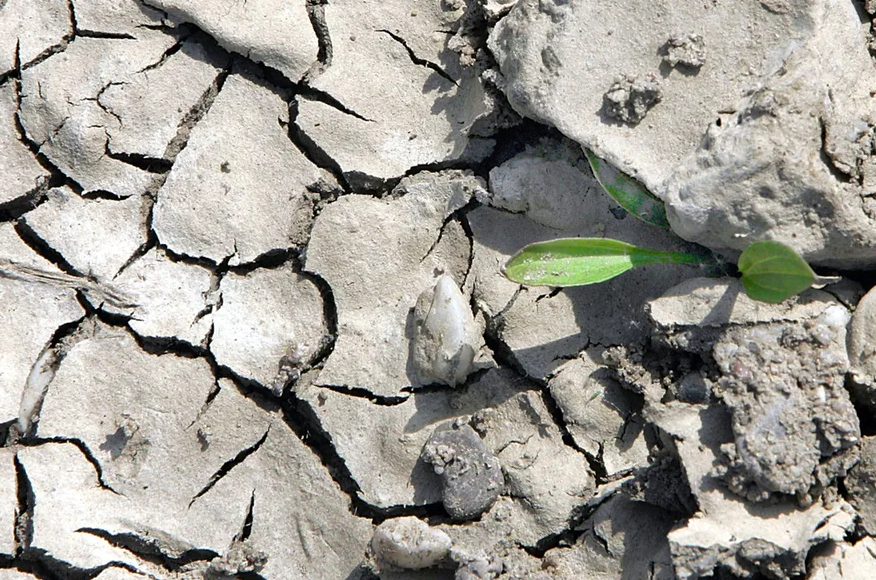Financial institutions must be wary of being consumed by the consequences of careless environmental or social decisions. Keystone / Rank Augstein Climate change is forcing financiers to change the way they think and act. This could have a big impact on their balance sheets – and potentially their very survival. “Bankers are no longer purely financial specialists, but also connoisseurs of the environmental and social footprint of investments,” said Yves Mirabaud in his last speech as president of the Association of Swiss Private Banks in June. He spoke just after the Swiss Financial Market Supervisory Authority (FINMA) ordered banks and insurance companiesExternal link to transparently “inform the public adequately about their [climate] risks”. Typically for
Topics:
Swissinfo considers the following as important: 3.) Swissinfo Business and Economy, 3) Swiss Markets and News, Business, Featured, newsletter
This could be interesting, too:
Nachrichten Ticker - www.finanzen.ch writes Die Performance der Kryptowährungen in KW 9: Das hat sich bei Bitcoin, Ether & Co. getan
Nachrichten Ticker - www.finanzen.ch writes Wer verbirgt sich hinter der Ethereum-Technologie?
Martin Hartmann writes Eine Analyse nach den Lehren von Milton Friedman
Marc Chandler writes March 2025 Monthly

Financial institutions must be wary of being consumed by the consequences of careless environmental or social decisions. Keystone / Rank Augstein
Climate change is forcing financiers to change the way they think and act. This could have a big impact on their balance sheets – and potentially their very survival.
“Bankers are no longer purely financial specialists, but also connoisseurs of the environmental and social footprint of investments,” said Yves Mirabaud in his last speech as president of the Association of Swiss Private Banks in June.
He spoke just after the Swiss Financial Market Supervisory Authority (FINMA) ordered banks and insurance companiesExternal link to transparently “inform the public adequately about their [climate] risks”. Typically for Switzerland, companies will be allowed to self-regulate, but FINMA wants full disclosure on their accounting methods.
Climate change is bringing multiple risks to the financial sector. The perils of natural disasters, such as hurricanes or flooding, are obvious in the insurance sector. Banks could also find themselves exposed to reputational risks or lawsuits if they bankroll polluting projects. This is affecting the way bankers work and process risks.
The traditional metrics for assessing risk versus return of investments are now gradually being adapted to incorporate environmental and social factors. Financial actors are even starting to police the companies they invest in.
If a bank sells its shares in a polluting company, they will merely be bought up by less scrupulous investors, argues Mirabaud. “It is better as a creditor or shareholder to exert pressure on that company to adopt a cleaner business model,” he says.
Change on the way?
Campaigning groups regularly call Swiss banks to account for funding companies and projects that cause environmental damage. This roll call of shame includes deforestation in the Amazon basin and in other parts of the world, the Norislk-Taimyr Energy oil spill in Siberia and the controversial Dakota oil pipeline project in the United States.
This does not marry well with Switzerland declared intention to become one of the world’s most prominent hubs for sustainable finance.
Changes in investor sentiment and business activities could also expose the financial markets to “shifts in supply and demand for certain commodities, products, and services”, says the Task Force on Climate-Related Financial DisclosuresExternal link (TCFD). Traditionally safe investments, in energy projects for example, might turn sour in future.
TCFD was set up by the Financial Stability Board to help financial players fine tune their governance, strategy, risk management and target setting practices in the light of growing climate concerns. The Swiss financial sector applies TCFD standards when assessing climate related risks.
FINMA’s recent requirements asking banks to fully disclose their climate risks might not be so easy to implement, says Martin Raab, board member of the financial technology start-up Global Green Xchange.
“Many elements of climate risk are still esoteric and unknown,” he told SWI swissinfo.ch. “What is the effective impact on a bank’s balance sheet if there is a flood catastrophe in Italy or parts of the Dutch coastline disappear? How will a drier summer impact the credit quality of Swiss borrowers? There’s no measurably correct answer.”
Increased costs
WWF Switzerland welcomed the new regulatory requirements but said it “regrets” FINMA’s reluctance to impose binding reporting standards. “Without clear guidelines, the disclosed data will vary substantially from one institution to another. Hence, the comparability and ultimately the assessment of the disclosed climate-related financial risks will be strongly impaired.”
The environmental NGO also called on FINMA to extend the reporting obligation beyond Switzerland’s largest financial institutions.
The Swiss Bankers Association (SBA) told SWI swissinfo.ch that it fully expects smaller banks to be incorporated into FINMA’s climate risk reporting demands in due course. Out of the five largest banks currently captured by the requirement, only PostFinance does not already use the TCFD model for reporting climate risk. However, the SBA does still anticipate some “additional effort” to fully meet FINMA’s demands.
Adding yet more layers to swelling compliance departments at banks will probably result in increased costs, according to Martin Nerlinger, Assistant Professor at the University of St Gallen’s School of Finance.
“This will be a cost-intensive process that requires investment in trained personnel and the establishment or expansion of processes and IT systems,” he said. FINMA, too, may need beefing up to evaluate the new reams of data being submitted from financial players, he added.
Profits to be made
On the other side of the coin, finance is needed to meet the goals of the Paris climate accord – several trillion dollars every year until at least 2030, according to the likes of the OECD and World Bank.
And there are profits to be made from rebuilding infrastructure, issuing green bonds and funds and supporting new innovations in alternative energy sources.
There is evidence to show that sustainable investing can be less volatile and offer greater certainty for investors over time than traditional investments, Switzerland’s State Secretary for International Finance, Daniele Stoffel, told a conference hosted by the Association of Swiss Private Banks this month.
Or as Vontobel bank CEO Zeno Staub put it, making money from applying environmental, social and corporate governance (ESG) criteria to every investment decision is “the only winning strategy” for making sustainable finance a success.
Tags: Business,Featured,newsletter








